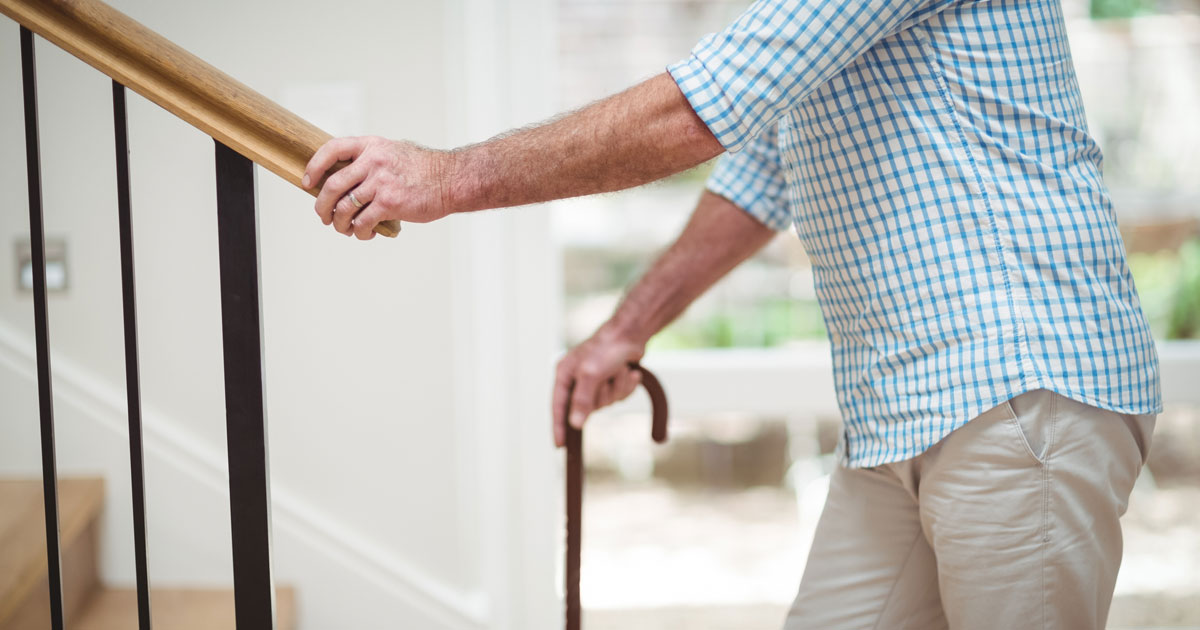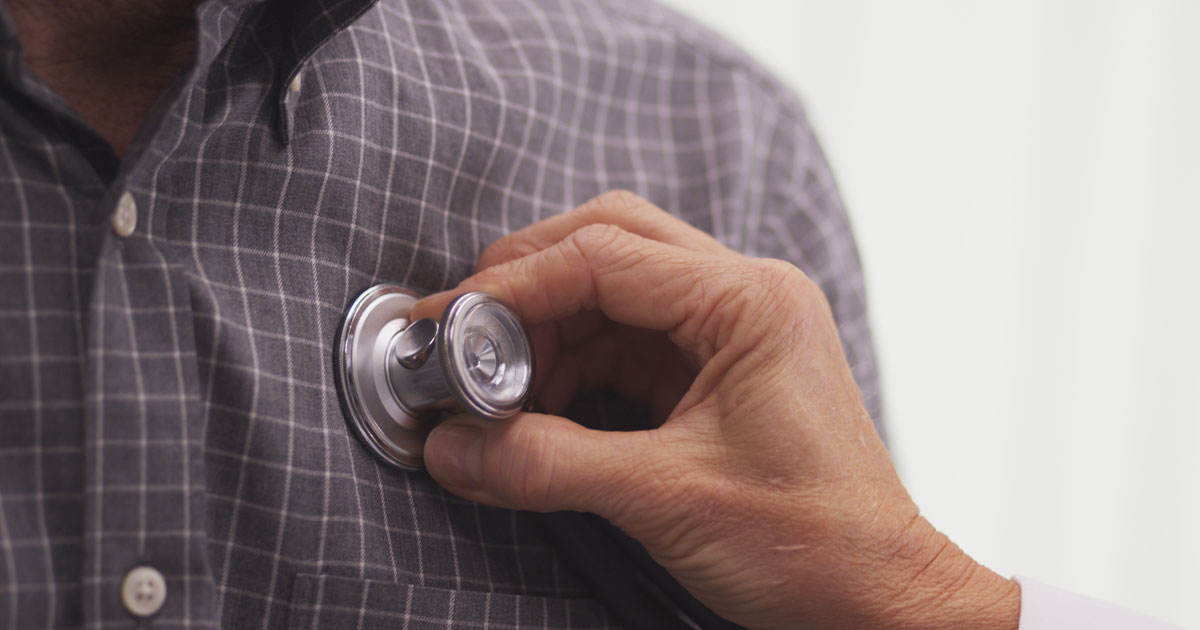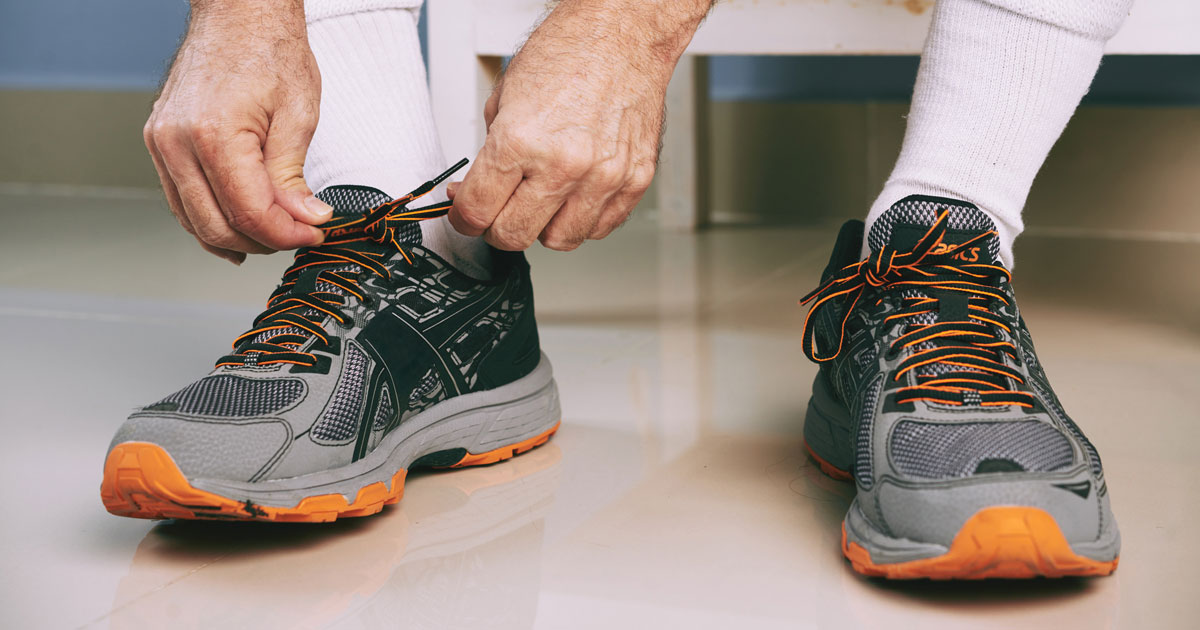
With at least 1 out of every 4 elderly adults over 65 having experienced a fall at some point, it is important to understand what risk factors might be at play and how you can help prevent falls from happening in the first place.
Many of the factors have to do with a person's overall physical and mental health. For those, consulting with a doctor is key to understanding any potential limitations. Other factors have to do with a person's home habits and environment. These risk factors can be accounted for by putting a little bit of thought into one's approach to movement and organization.
This post discusses all of that and more, so that you or your loved one can develop fall prevention strategies to help maintain a high quality of life.
The Importance of Fall Prevention for Seniors
Younger people might not be able to fully appreciate the dangers of a fall for seniors. After all, their bodies are in very different places. Older adults may have less muscle mass, lower bone density, and other issues that can turn even a softer fall into a major medical incident. Broken bones, hip fractures, and traumatic brain injuries are just a few of the potential injuries that can result from elderly falls.
Making matters worse, these same potential conditions often make it more difficult for elderly people to fully recover. This means that a single fall could lead to injuries that persist for the rest of their lives — while also putting them at greater risk for falling again.
Falls account for up to 15% of all emergency room visits and 40% of all deaths caused by injury. Beyond the physical, a fall can lead to a prolonged period during which the person loses their sense of independence, experiences depression, and endures other psychological challenges that restrict their mobility.
All of this adds up, so seniors should be doing everything they can — both in terms of their bodies and their homes — to reduce fall risk.

How Older Adults Can Prevent Falls
With just a few bits of insight, seniors can do quite a lot of work toward avoiding their first fall or prevent future falls. By considering the information below as a kind of fall risk assessment, you can target specific problem areas and develop a plan for how to deal with those issues one by one.
Practice with Mind and Body
In many cases, a fall can be attributed to something that is going on which someone's physical body. Here are a few ways you can help prevent falls by working with your mind and body.
Stay physically active. One of the best methods for avoiding a fall is to stay on top of your game physically. Exercises that strengthen your muscles, improve your balance, and hone your coordination all work to make you less likely to experience a fall.
Know how your medicine affects you. Whether it's for your thyroid or your blood pressure, medications can have all sorts of side effects that can cause you to fall. Some make you feel dizzy, others affect your vision, and others still make it uncomfortable to move in ways that are natural and necessary. Be sure to account for any and all side effects as you go about your day, and talk to your doctor about potential alternatives if one is causing recurring issues.
Have your vision and hearing checked. So much of how we interact with the world is through our sight and our hearing. It is obvious that we plan our movements around what we see, but we do not always account for how we use our hearing to judge the distance and direction of the things around us.
Get plenty of rest. We are rarely at our best when we are tired — and this only becomes more true as we age. Be sure to get an adequate amount of sleep each night, and take naps during the day as necessary to ensure that you are sharp and focused.
Move deliberately and slowly. Purposeful and predictable movements help to keep things from going awry. It can also allow you to feel more confident as you approach your daily tasks.
Understand your overall health. It might seem obvious, but if a past injury or current chronic condition is affecting your ability to move freely, it is important to keep it in mind. Talk to your doctor or physical therapist about ways to best account for your specific situation.

What You Can Do Around the House
With six out of 10 falls occurring right at home, it is important to know what you can do around the house to help prevent falls.
Have good lighting in smart places. As night falls and people's vision starts to become strained, it is necessary to have adequate lighting all throughout the house. In particular, putting nightlights in the bathrooms and living areas, as well as having switches at both ends of hallways and staircases is a good idea. Be sure to also have a lamp switch within reach of the bed, and it does not hurt to have a flashlight nearby in case of a power outage.
Install handrails and grab bars. These are most effective in bathrooms and on staircases or steps. In the case of stairs, it is also worth noting that you should avoid carrying things that require both hands or block your line of sight.
Install non-slip surfaces. There are several places around the house where these can be useful. The most common places are in bathrooms and kitchen floors, which tend to get wet. They are also helpful on steps and stairs, or anywhere else where you are getting up or down.
Keep things tidy and accessible. Staying on top of household clutter gives you a clearer sense of what is around, and it also shows you a clear path. Keep extension cords tucked behind furniture or underneath rugs, and make sure the rug's corners are lying flat. If you use certain items every day, be sure that you can reach them easily.
Be mindful of each room's layout. The flow of a room can make a big difference. If you find that you are constantly having to navigate around things to get from one place to another, consider rearranging the furniture to make things more simple and streamlined. Having wide pathways and making sure your furniture is the right height for your body can go a long way.
Use assistive items. Rely on a reach stick or a cane in situations where you might need to put yourself off balance. The right tools for the job can help prevent older adult falls.
Wear sensible shoes. Comfortable insoles, a snug fit around your feet, and good tread help you keep your footing. You can also opt for shoes with velcro straps that make it easier to tighten and loosen than laces for added convenience.
Conclusion
If you or your loved one are worried about falls, it might be time to come up with a prevention strategy. At Keystone Health, our team of skilled professionals has years of experience providing home health care services to Idaho residents in the greater Boise area. We can help you understand your risk level and develop a plan that will make serious injury resulting from a fall less likely.
Start our New Patient Process today to get started.
